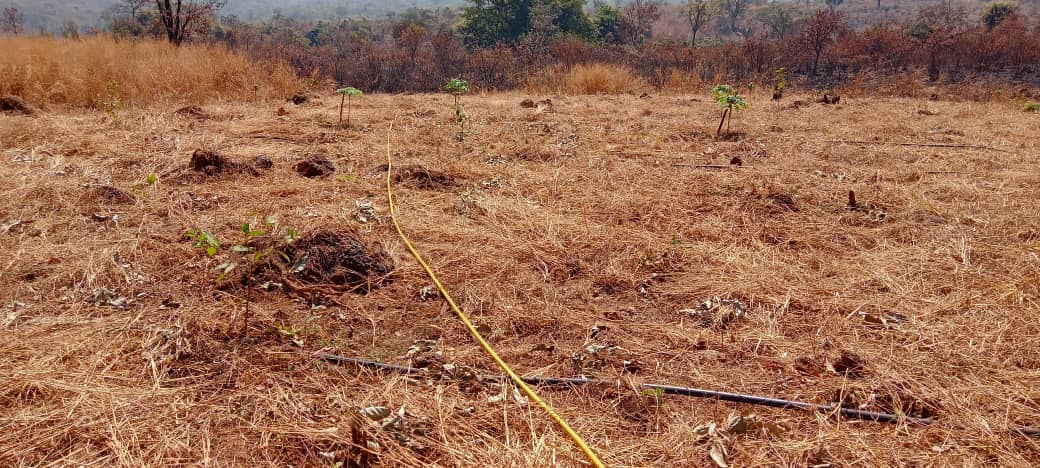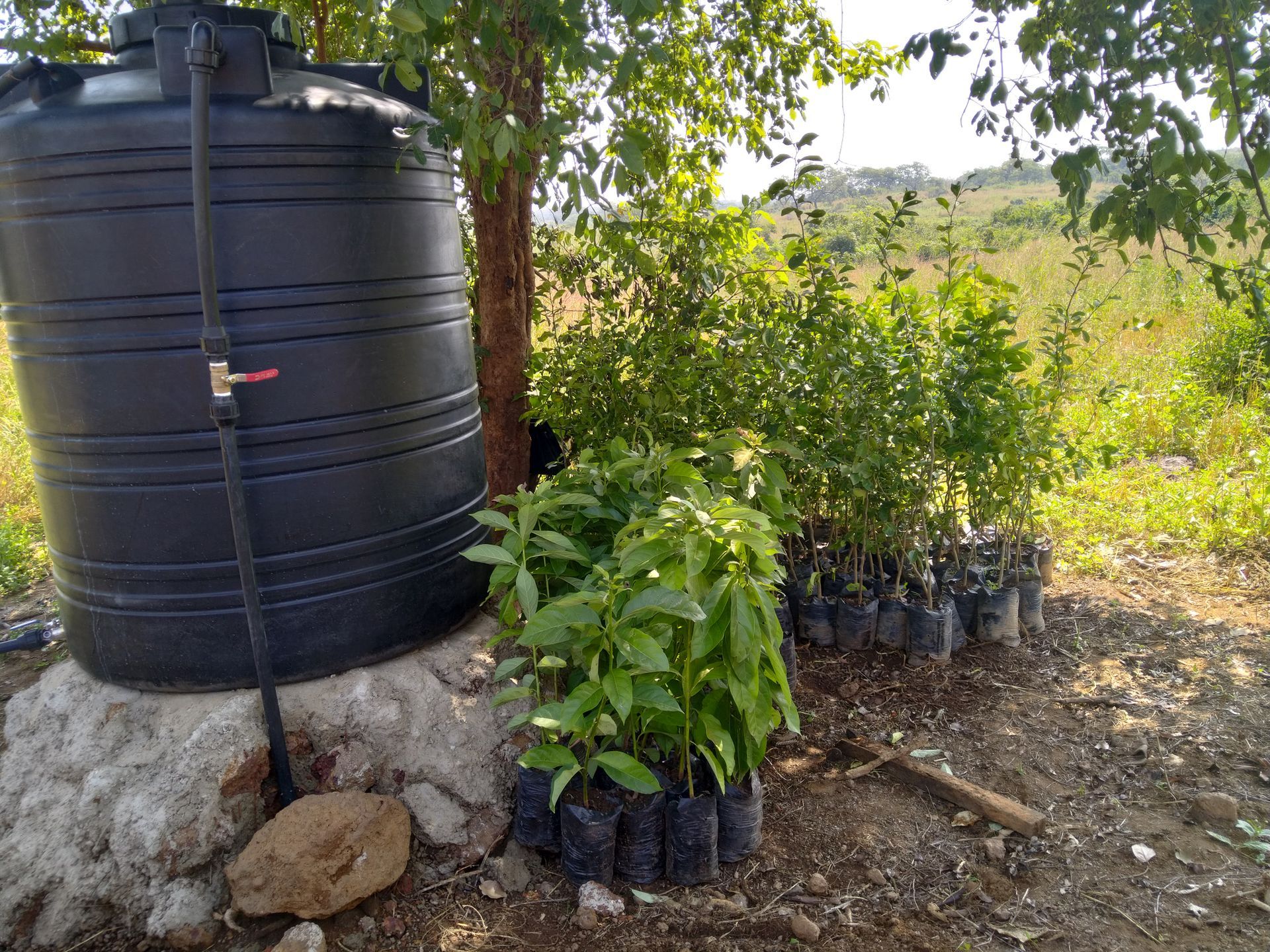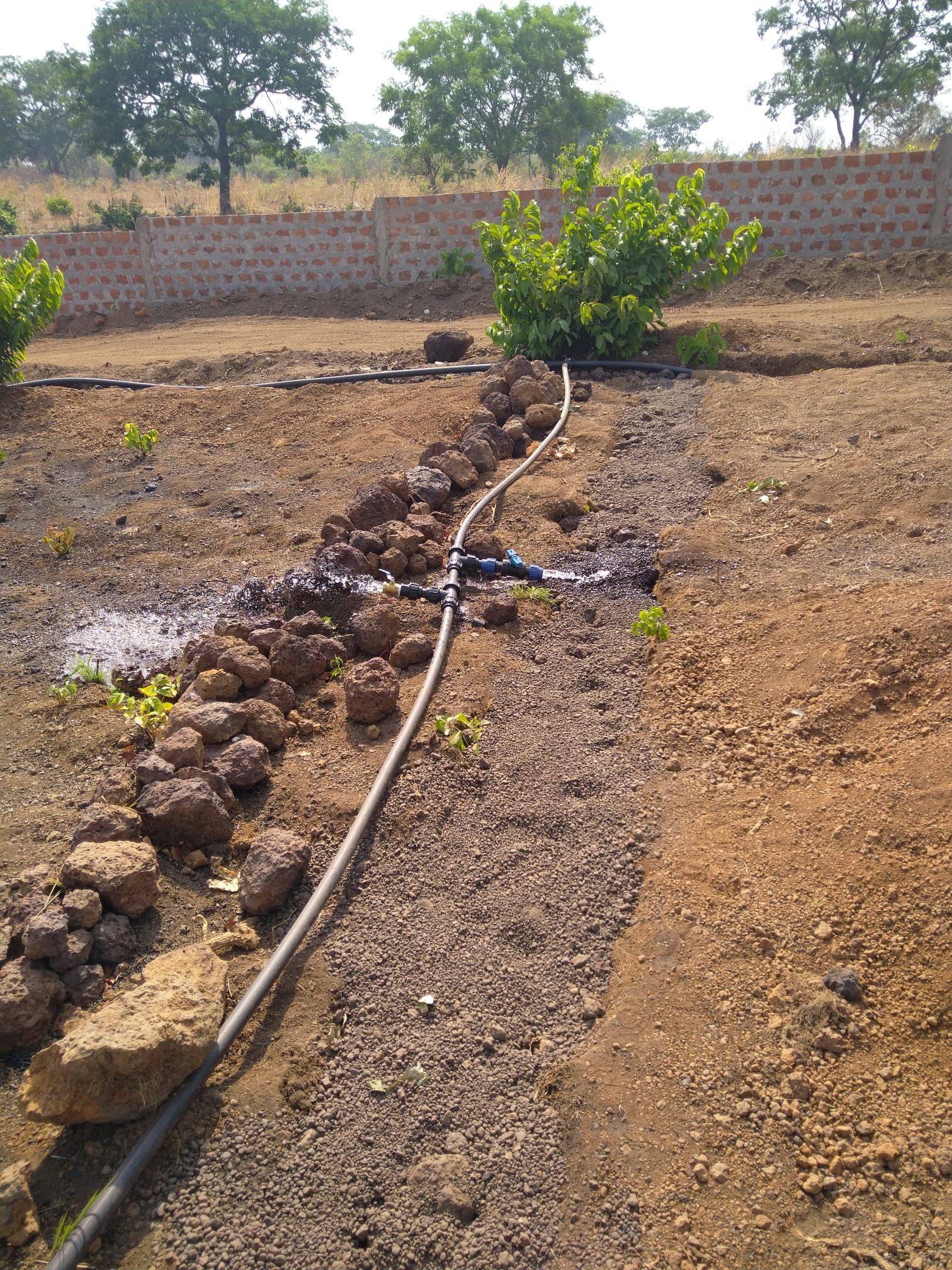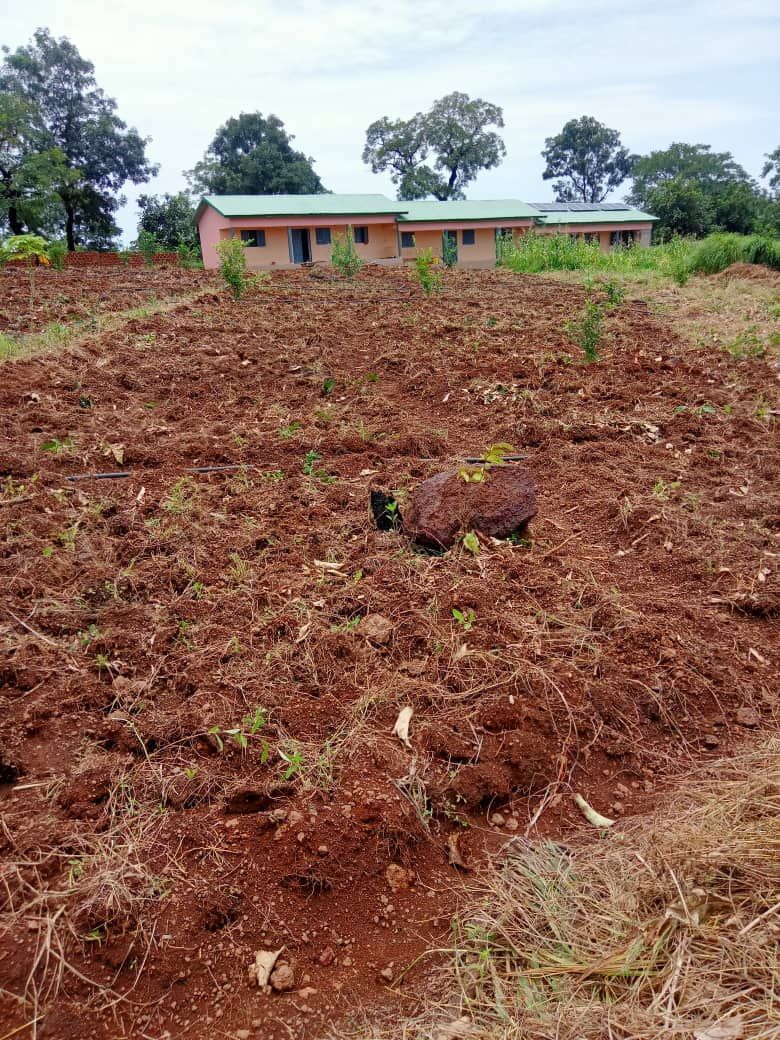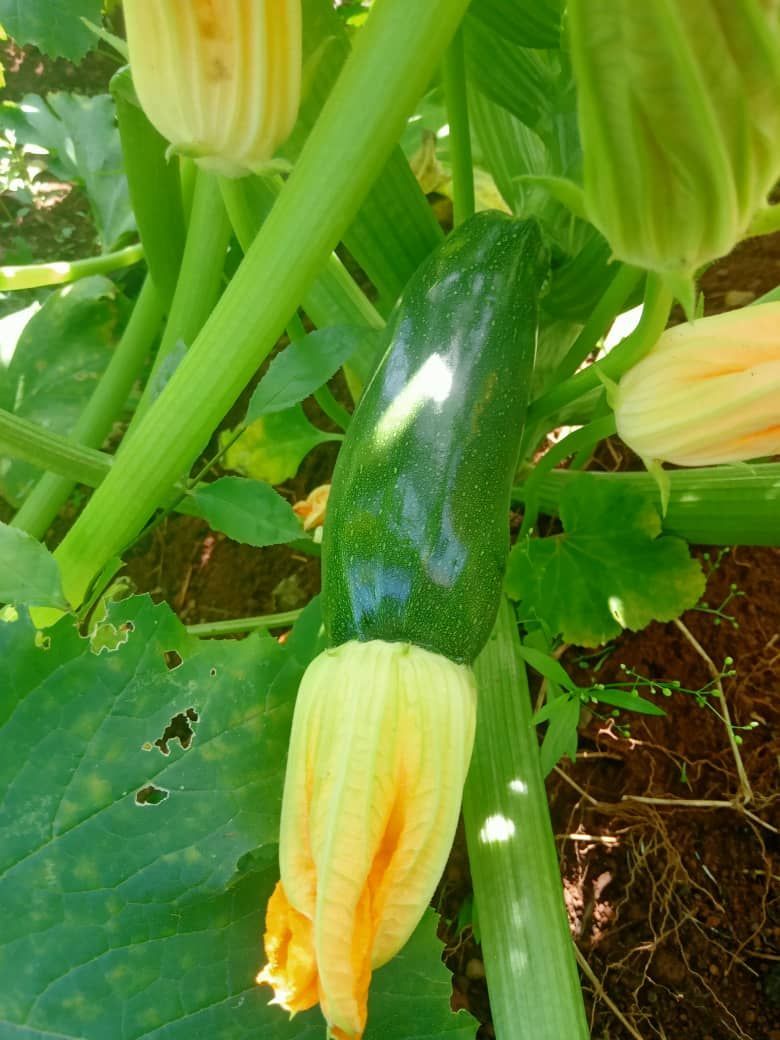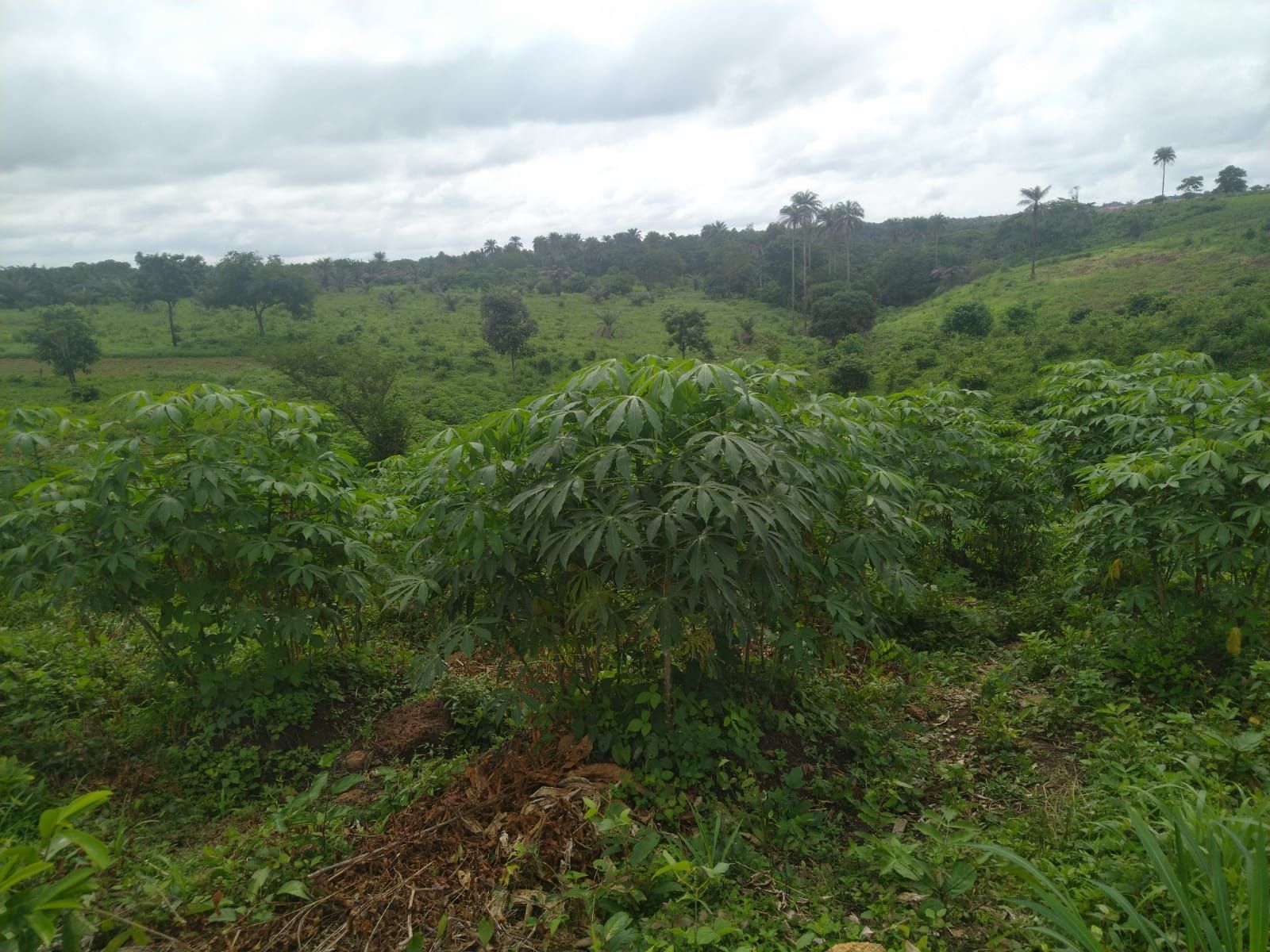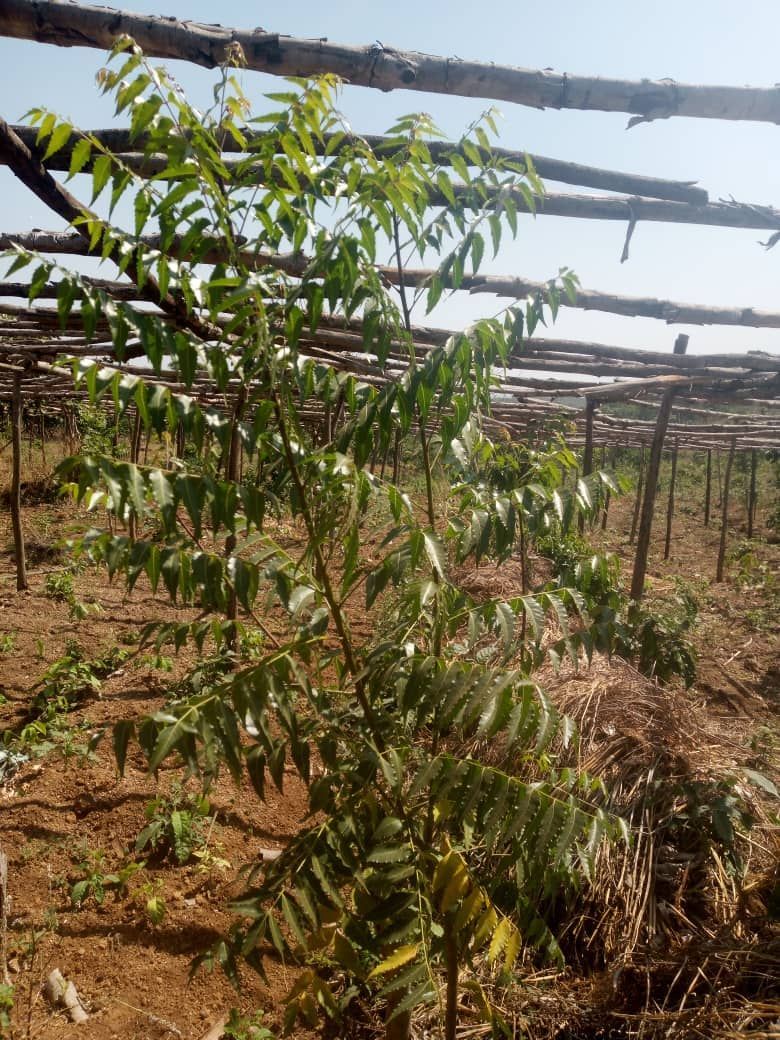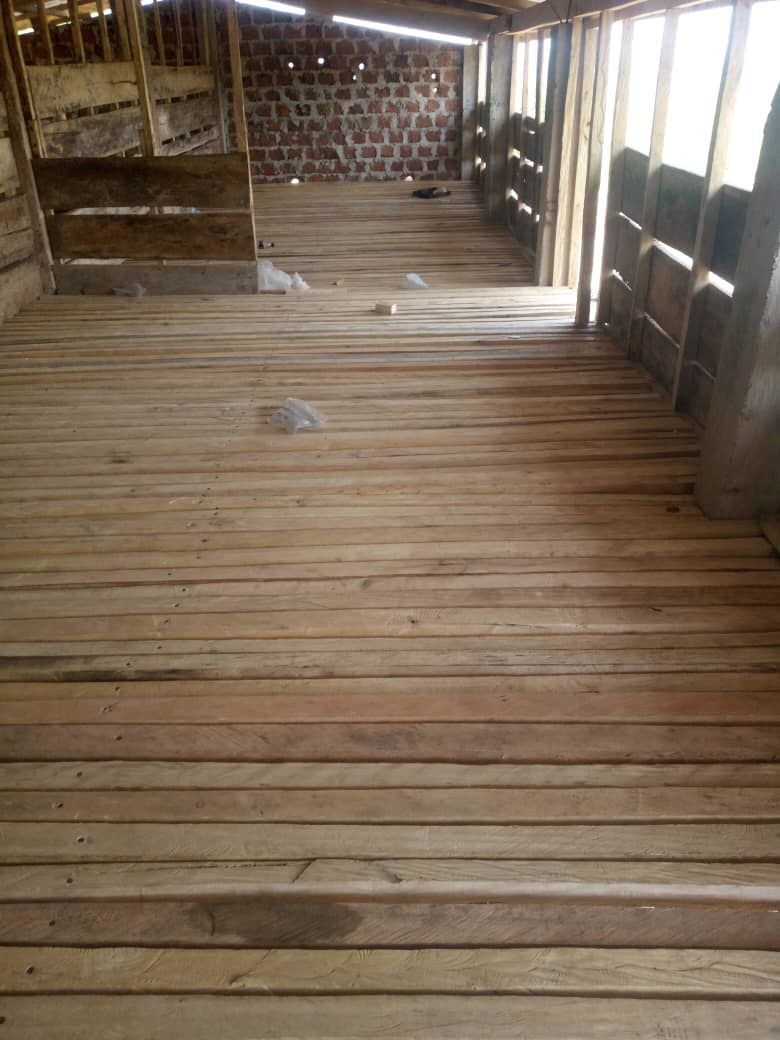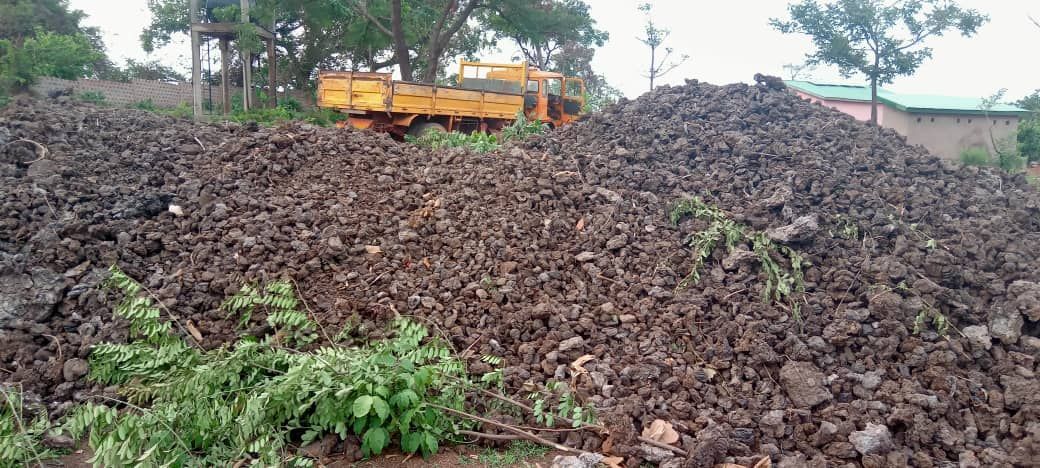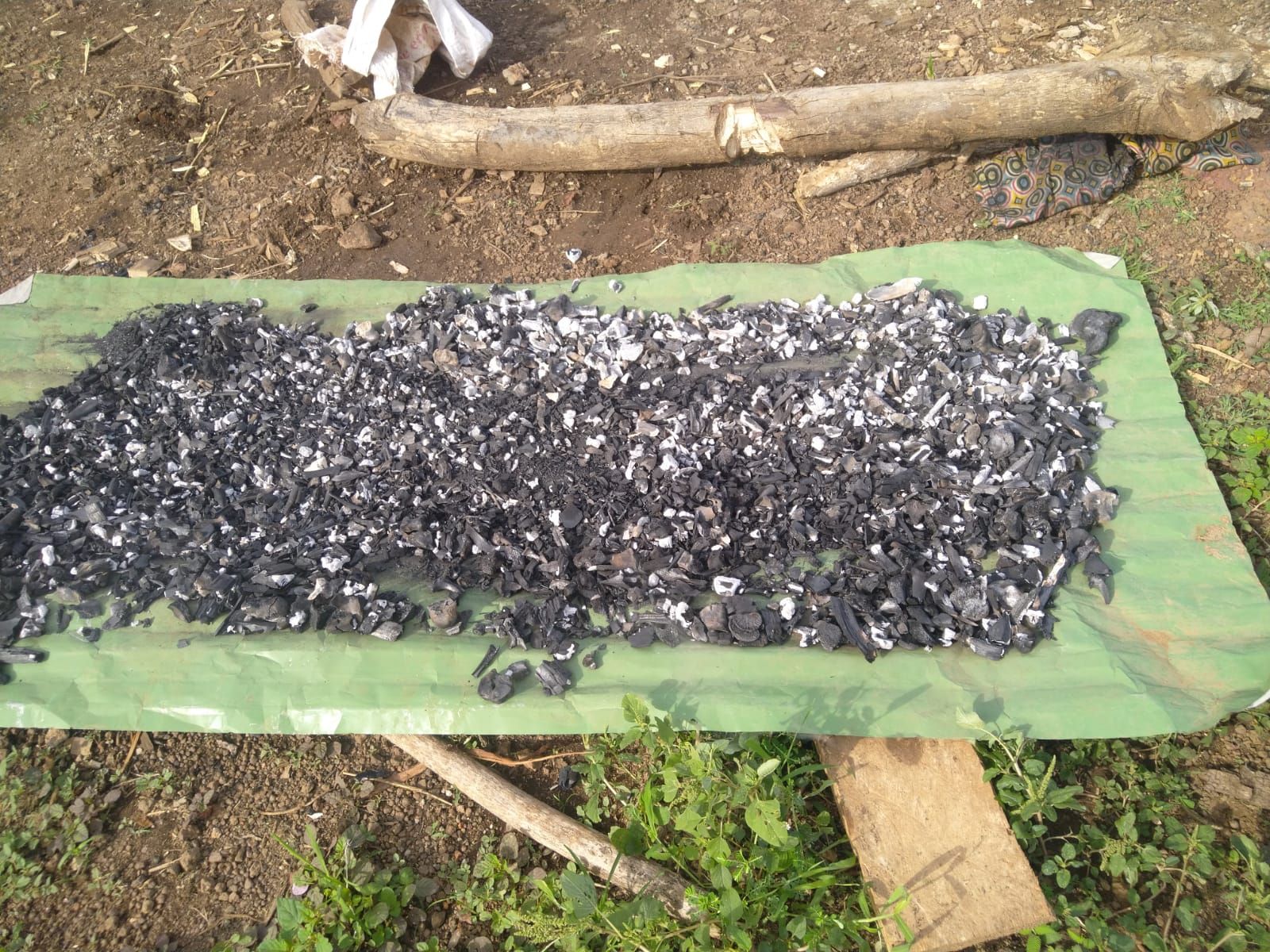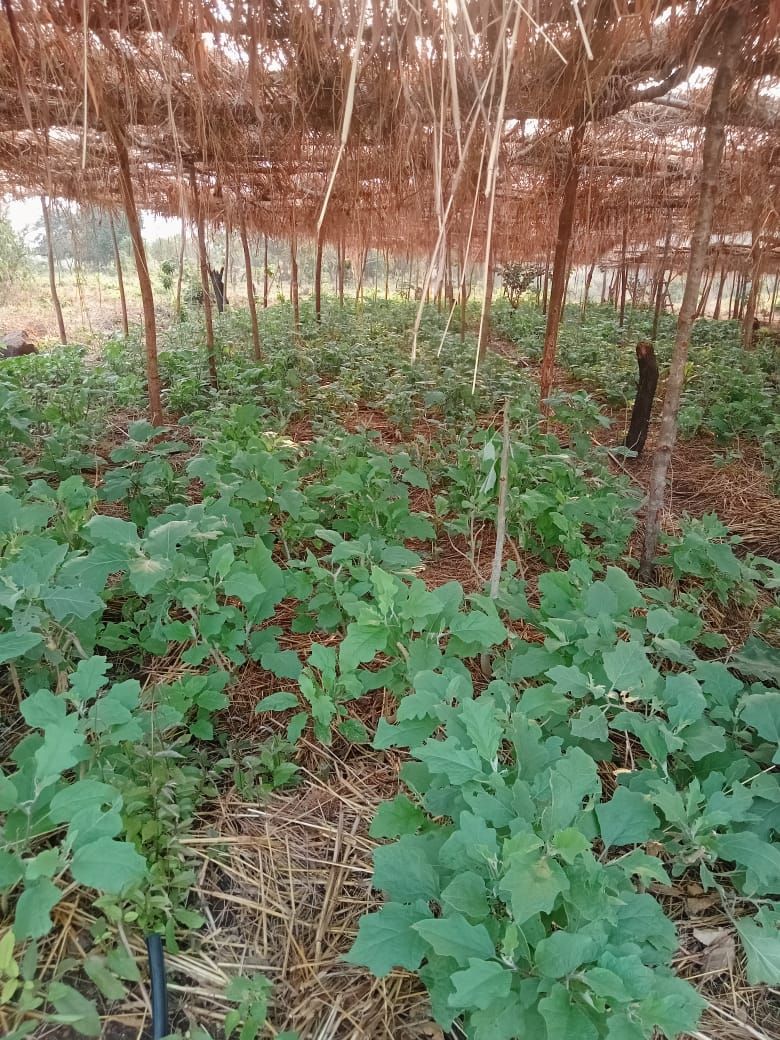2022 The Beginning
The natural green, first fruit trees, the water of the land serving the valley, two deep well with solar pomps to bring the water for drinking and for irrigation of the fields to the surface, the constructions - the accommodation for the team in construction, and specially the wall against the predators: cattle, sheep, goats of the neighbours and the bush fire - and what was left after such a bush fire. But the first cultures, the aubergines, give us hope. Also the irrigation system is being installed.
In the meantime, two yeras have passed
It is the beginning of 2024 and we have the first harvests of tomatoes, aubergines, cabbage, delicious zucchini (which the flies also appreciated - and ruined), pumpkin, chili and persil. And we are experimenting with carottes, since the climate is not to favorable for them in Kindia. We are trying to refine our methods of cultivation. Yet the radish grows well, since the soil is to acid, but this seems to be just well for the radish.
The manioc is developping very well and we have planted sweet potatoes and taro. In addition, we trying out if yams and gbara, a very sweet variety of yams, can be cultivated here in Kindia. One season, we have tried to plant rice, but the battle against the birds, persistent thieves of the grain, have discouraged us - too much effort for results which are not really worth the efforts.
In the meantime we can better recognize the trees in our fruit garden: they start to gain some hight.
We have planted the neem, a tree who's leave have medical use (at right), around and within the vegetable fields - as a repellent, since his smell will have an effect against the nematodes and other parasites. Moreover, one day he will have developped such a height that he can offer precious shade.
The lemon trees have grown so well that the give already delicious fruits and the taste of the papayas is excellent.
The sheep have given lambs, the cattle have become lawnmover, as also the sheeps, and the chicken love their liberty - even too much, since the refuse to contribute to the work (see the page on Permaculture).
The importance of the animals: cattle, sheep and chicken - they all give us their manure as biological fertilizer, natural which we use to improve the soil. And we have started composting to increase the vegetal part of the soil. The sheepfold is constructed to host at least 50 sheeps (note: in 2025 we are now at 12 sheeps). With regard to the cattle, we have achieved the limit of 20 cattle already in 2024; the part of the plantation used as pasture can not accommodate more than that. Concerning the chicken, we can and want to well increase their number ;)
On the hangar, which we have constructed in 2023, we have installed in 2024 a small mill to mill the seashells to gain coquina to reduce the acidity of our soil. Moreover, the mill can grind the carbonised cattle bones, our source für natural phosphor (see the page on Permaculture), fully biological fertilizer to help the plants to develop their leaves and give them energie.
While facing the extreme heat of the dry season 2024, we contructed hangars on the vegtable fields, covered with strow to protect the soil against drying out - in addition to mulching. Our Our tree nursery seems to well appreciate the protection. We plan to refine such measures to keep humidity in the soil so as to be able to develop a living soil which offers plantes the nutriments which they so urgently need to become healthy and resilient.
Concerning the zucchini, the white vegetable mesh, which was supposed to protect them against the predators, creates to much heat, since the zucchini have been planted because of the water in the valley, yet there ventilation lacks - a lesson learned. Now it is up to us to assure sufficient ventilation so as not to expose the plantes to such a suffocating heat. It is a question of the right choice of the place and of the month, which will allows as to cultivate again delicious zucchini in Kindia.
We plan to produce a large variety of vegetables - beyond tomatoes, aubergines, chili, salades and cabbage we try to cultivate also carottes, zucchini and various varieties of pumpkin - and herbes like persil and coriander.
Our fruit garden includes for the moment trees for avocado, mango, oranges, lemons, papaya, palm and coco trees. The papaya and lemon trees have been the first to produce.
The plantation has planted not only manioc and rice, but also sweet potatos, yams and taro - to give variations into the kitchen and also because of their healthy nutritional value.
And - we are experimenting with caffee and cacao.
Sponsoring écologique via: https://www.goodcrowd.org/permakultur-in-westafrika
Et vient une agriculture saine....











